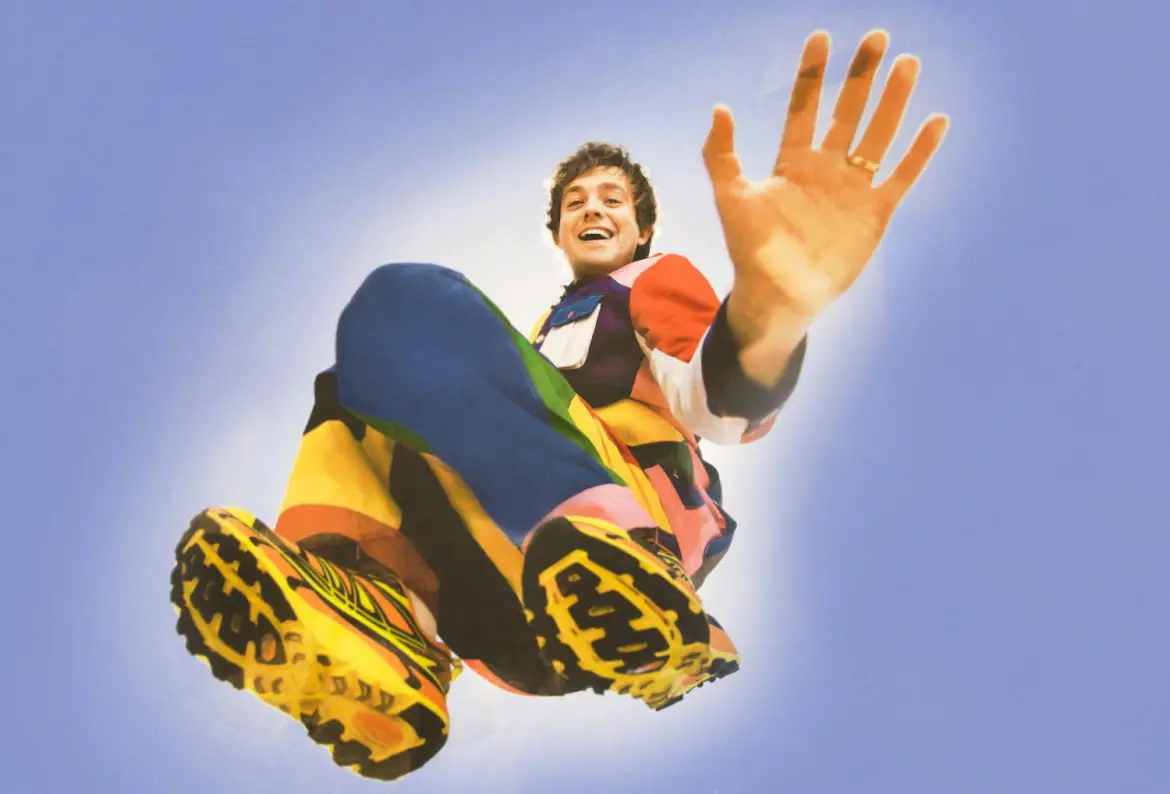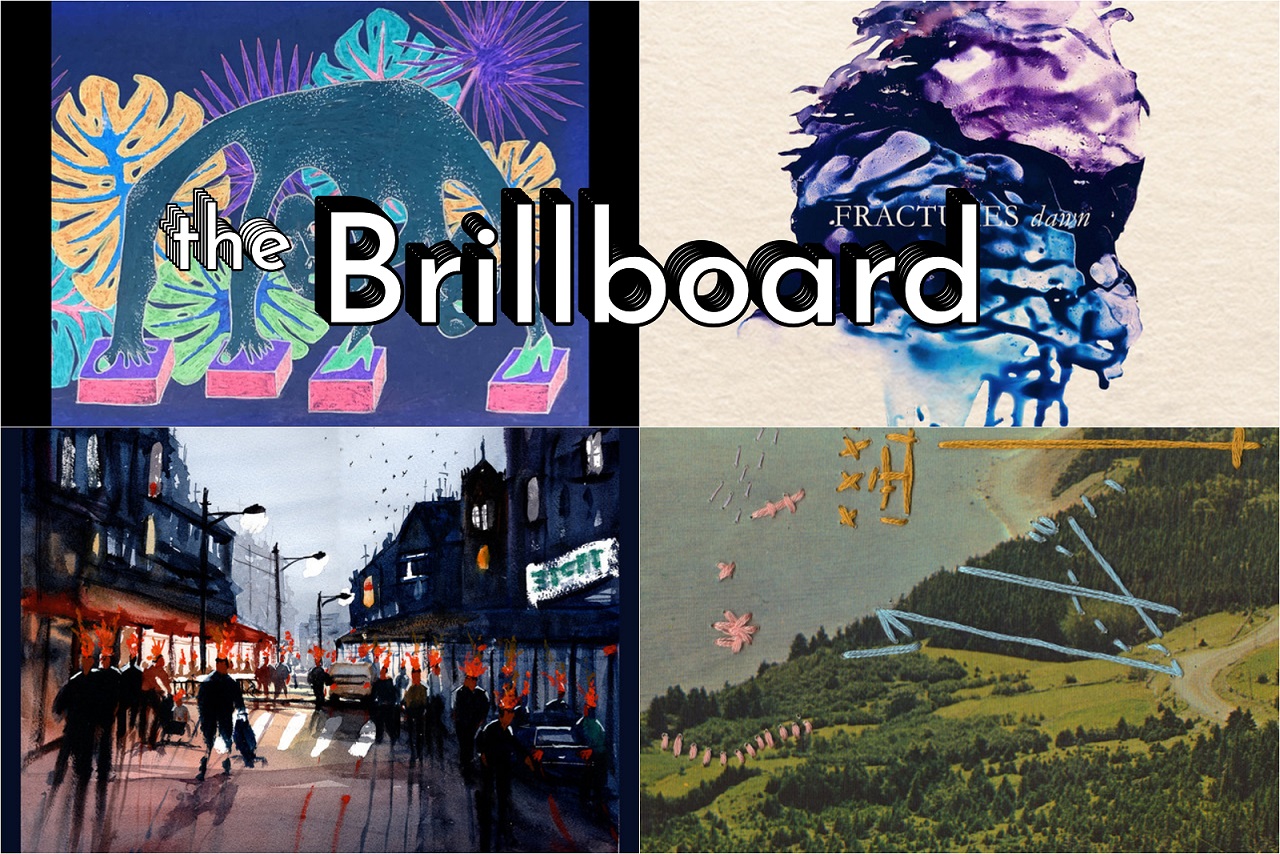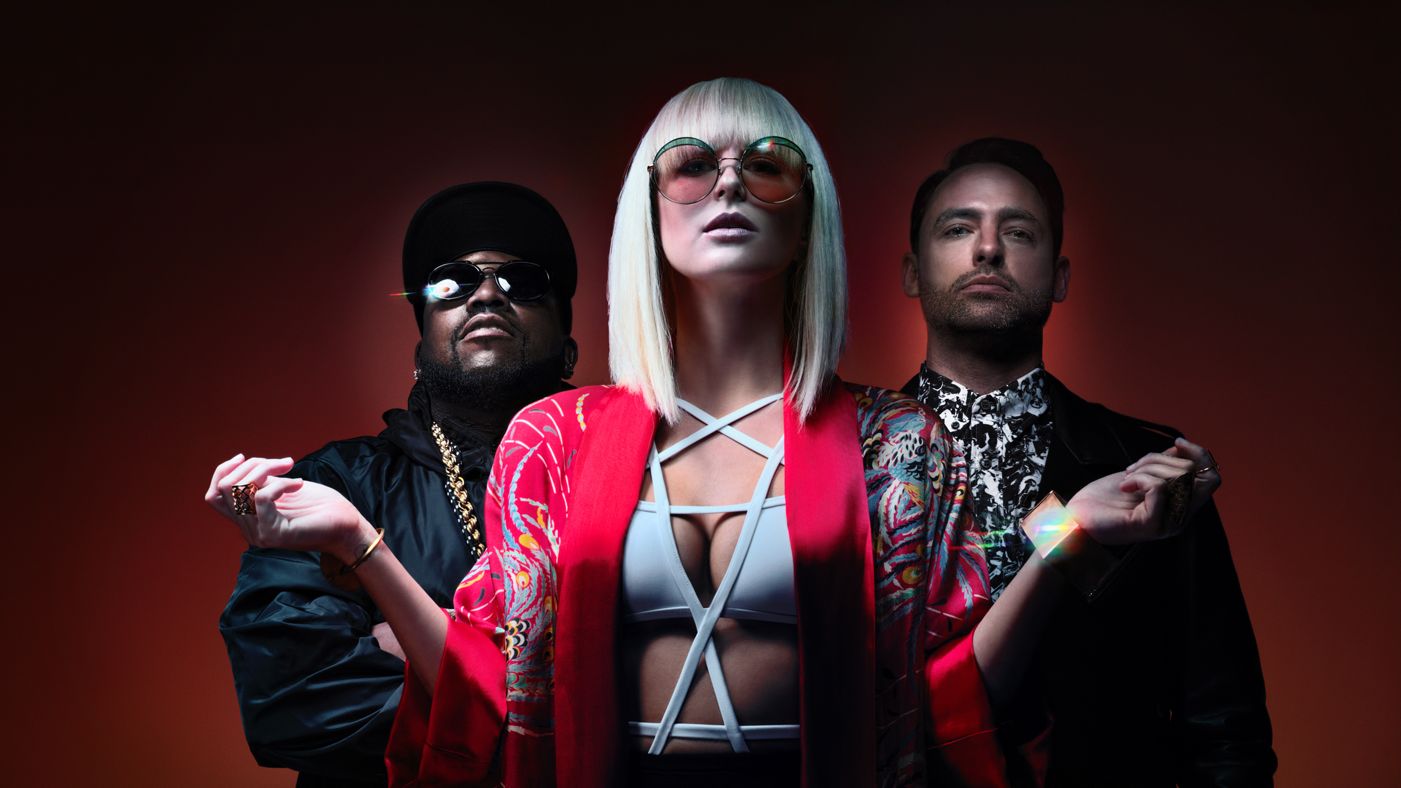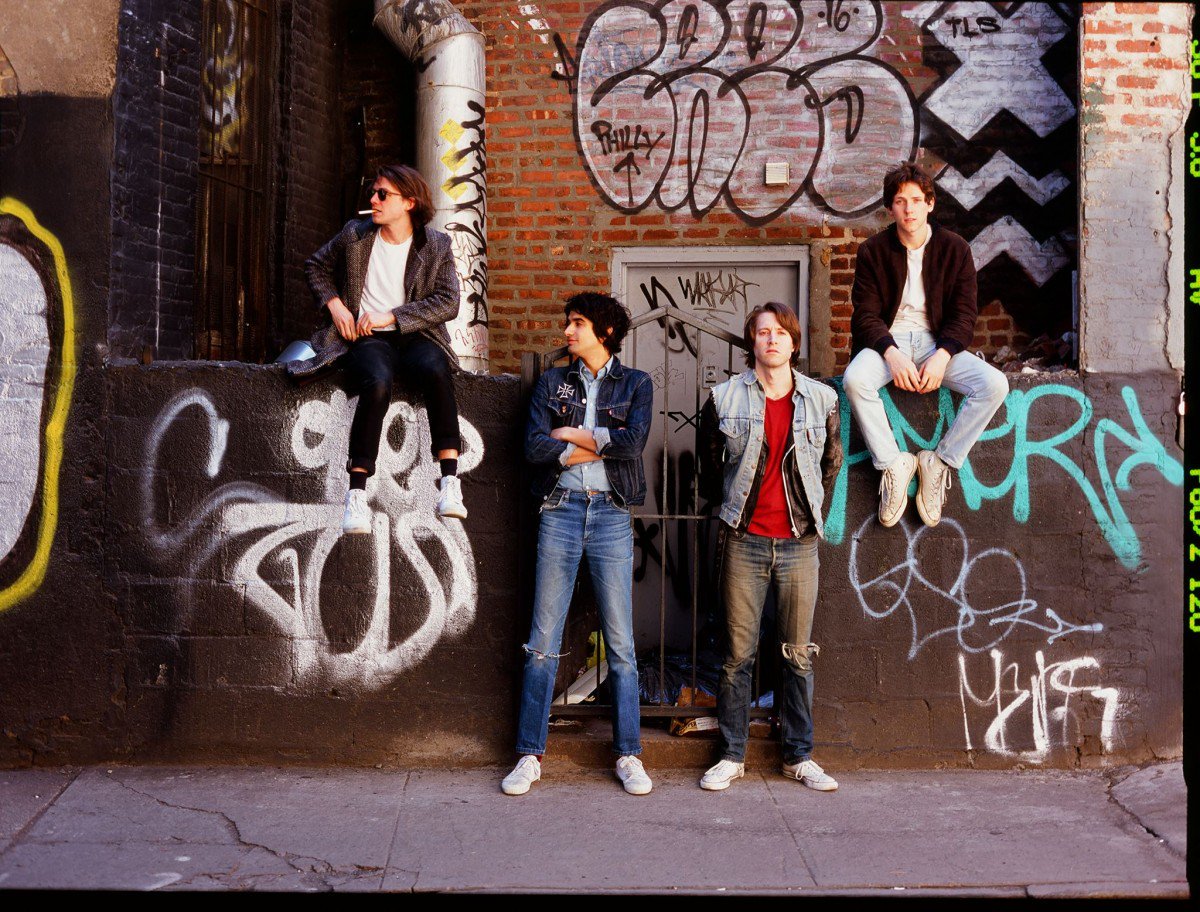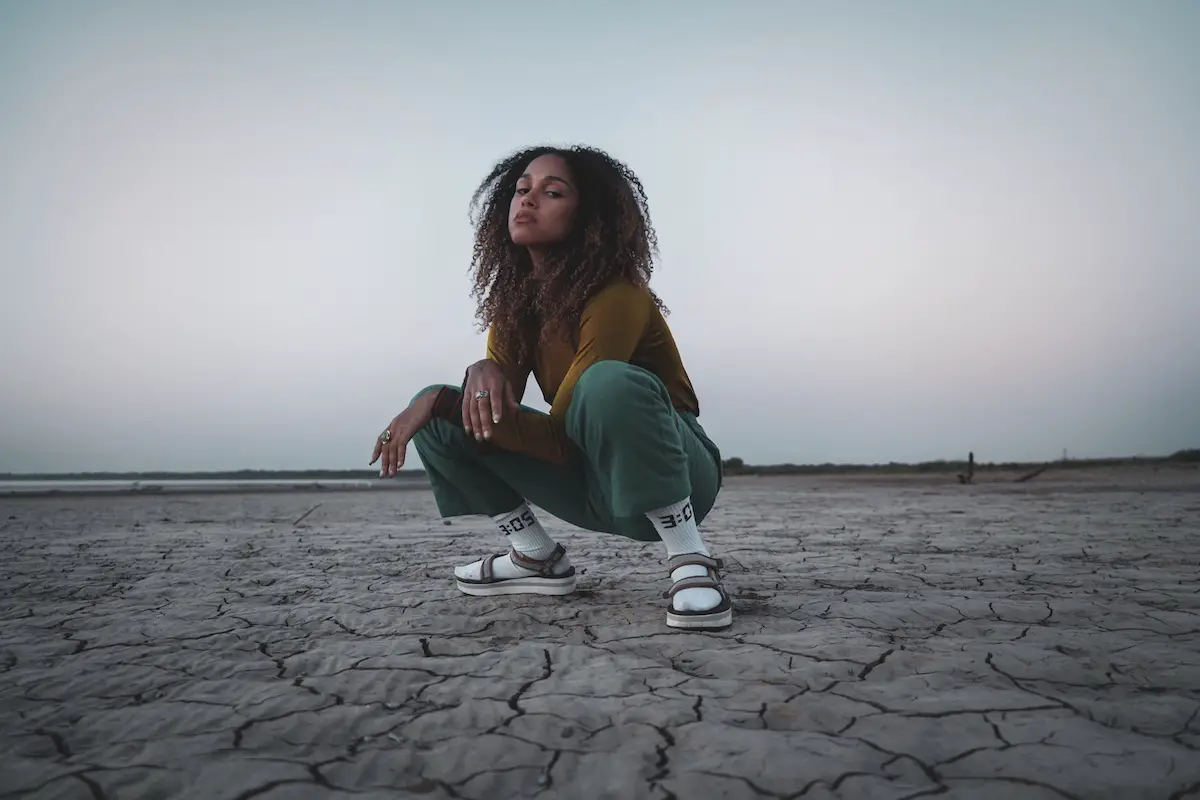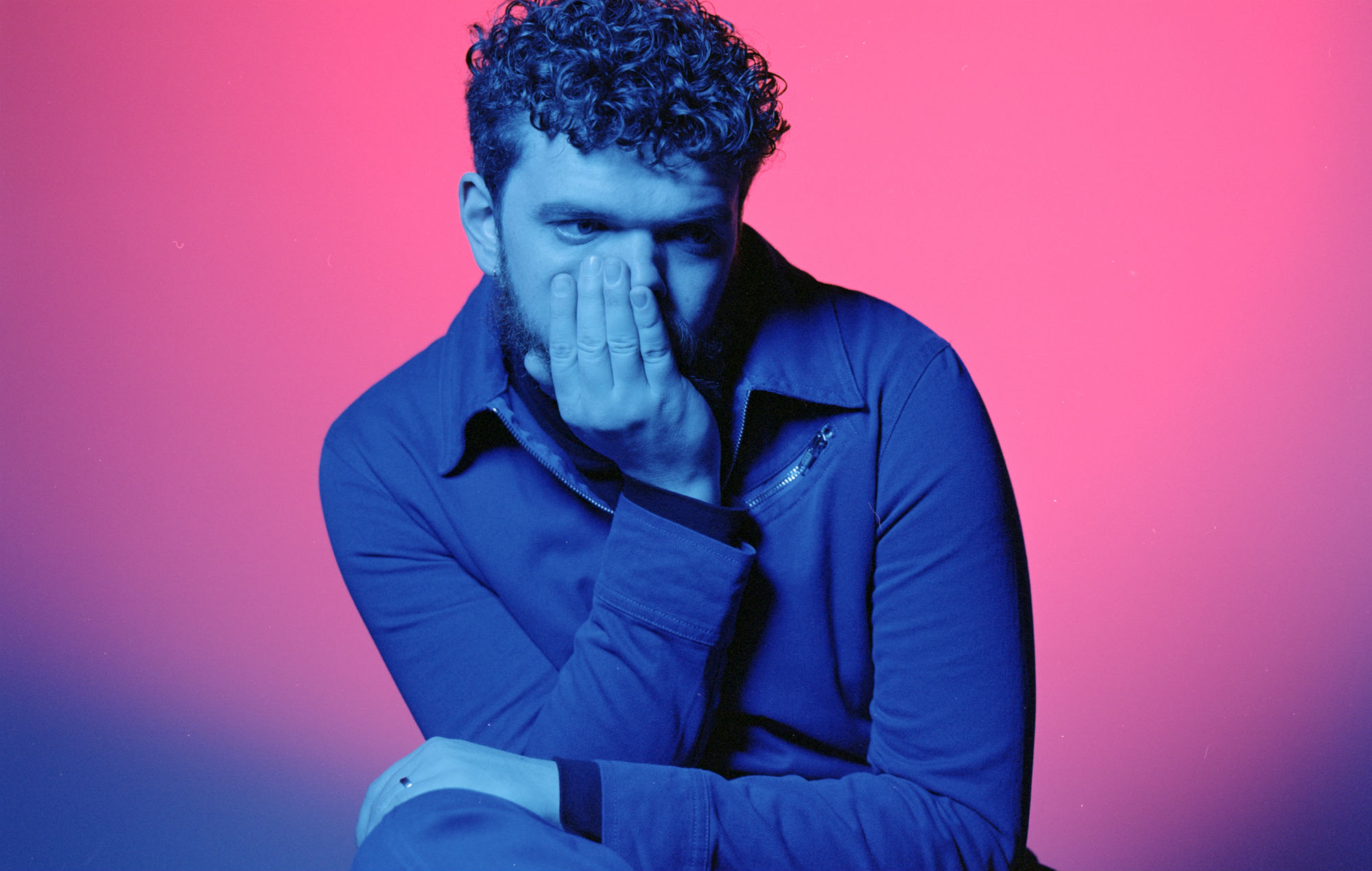Indie pop sensation Dayglow opens up about his third album ‘People in Motion’ and being a holistic, self-produced operation always ready to learn more along the way.
Stream: ‘People In Motion’ – Dayglow
I was just going to make the most ‘Dayglow’ album that I can, whatever that means. If I do have a sound, I think this album represents that the best, kind of for the first time.
Dayglow’s newest album comes in hot with a dazzling sweetness and serious polish.
The third record from the self-built indie pop sensation shows a pure and melodic polish that’s always been right within the Sloan Struble’s grip. From his debut effort, Fuzzy Brain, to the fresh effort of People in Motion, which dropped October 7th via AWAL, Struble has managed to tug on the strings of happiness seemingly effortlessly. With a North American tour already underway, Dayglow has already embarked on the next era for this DIY project.

I don’t need too much
Just a stereo and some rock and roll on a real guitar
Now I get so bored, it’s so monotonous
Remember when we thought
it was all going to be so grand?
Well don’t you understand
On the radio you just listen to music
You don’t need some video
Just got to get yourself home
And all the world keeps spinning
forever on out of my control
– “Radio,” Dayglow
“I went into this record with no rules. The only rule was that I wanted this to feel really high energy, like it was made to be listened to live,” Struble says of People In Motion.
Based on the music he already has out in the world, it seems like the logical next step for this euphoric powerhouse. Atwood Magazine got the chance to sit down with Struble the week of the album release to discuss Dayglow’s latest LP, out now on all streaming platforms.
— —
:: stream/purchase People In Motion here ::
Stream: “Radio” – Dayglow
A CONVERSATION WITH DAYGLOW
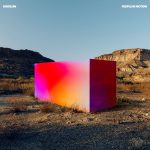
Atwood Magazine: You have a lot going on right now and a lot on the horizon. The new singles, the album is about to come out, and you have the tour. How are you feeling about it?
Dayglow: I’m feeling some general excitement; like it is a lot to be doing. But I just feel overall extremely grateful for everything. And I have such great fans. I have such great people working with me. And it’s exhausting, but in the best way. Like you’re running two marathons back to back. But then you’re like, ‘That’s kind of cool. I just ran two marathons back to back.’ That’s something to be proud of. And you know, it can be tiring in the middle of it.
You have a distinct, full, upbeat sound across your work, in your previous albums and the new singles. When do you think that sort of songwriting really took hold for you?
Dayglow: I grew up loving 2010s indie music, like Two Door Cinema Club, Phoenix, MGMT, bands like that, where it was band music, like it’s rock music, and there’s tons of elements going on. There’s like, four or five hooks in a song and they’re all just layered. I was really drawn to that music because my brain just kind of works that way. And I am just a perfectionist. And so, I really want to capture energy the best way that I can, and so usually I end up not necessarily overproducing but really overdoing something, but in a good way. Or at least I think so. I make all my music by myself, and produce it myself. That gives me the freedom of not really thinking in parts. It just all works together, so the picture can be as big as I want it to be.
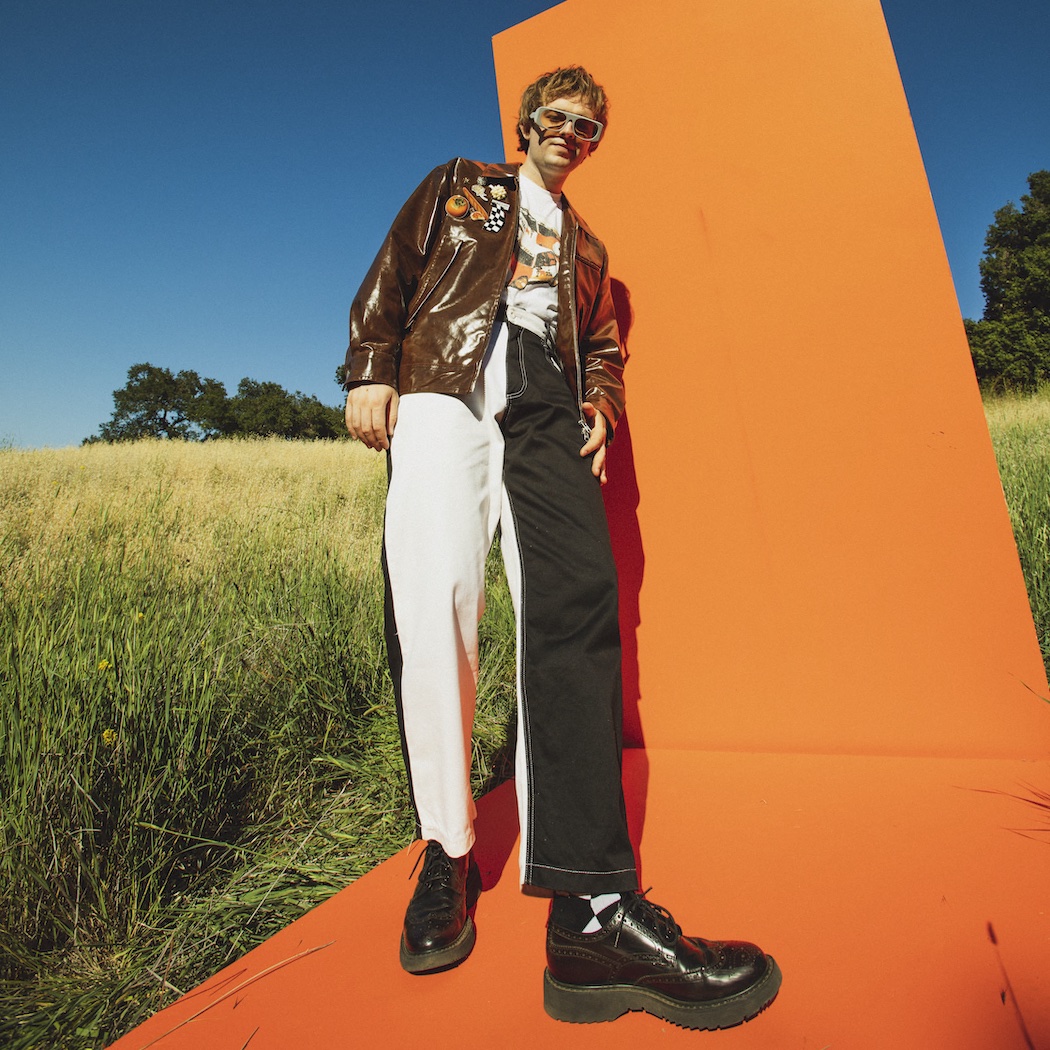
I make all my music by myself, and produce it myself. That gives me the freedom of not really thinking in parts. It just all works together, so the picture can be as big as I want it to be.
Being such a DIY operation with your hands in every part of the process, how has your process evolved from album to album? Was this how you’ve always envisioned yourself as an artist?
Dayglow: I didn’t even envision myself as an artist like, two years ago, while making Harmony House and Fuzzy Brain; I didn’t know what I was doing — I still don’t know what I’m doing. I just released Fuzzy Brain completely alone. I didn’t know anybody else that was a musician at all, or anything. I didn’t know anybody in the industry. And it wasn’t some marketing tactic to be like, ‘Oh, there’s this teenage kid making music by himself!’ I was genuinely doing that. I had no idea what I was doing. Initially, my DIY approach came out of necessity. I didn’t know any different. I had always assumed, ‘Oh, this lead singer of this band must have a say in how the drums are mixed.’ I just viewed everything really holistically. And that helped me shape my sound and make a workflow that I really like. It ended up just being this really honest, transparent thing where my fans and people that listen to my music know exactly where something’s coming from. And I think people are starting to crave that across the board nowadays. You know, I think that can go for food, or anything really. People just want to know where something’s coming from. And I think that’s what makes Dayglow special. They know whatever it is, it came from me at least. And that kind of makes it special. So I’ve stuck around doing that because I think that’s what makes it special.
You mentioned that when you made Fuzzy Brain you didn't really know what you were doing and didn't really envision yourself as an artist. What motivated you to start making music?
Dayglow: It’s all I ever really did and I can’t really explain why. It’s definitely my hobby and what I care about. My uncle gave me really good advice on how to know what you’re passionate about, and what you were made to do. It’s what you go to do that nobody has encouraged you to do. I wasn’t in a social circle where being in a band was cool. But I felt this pressure completely on my own. I would just like Google, how to mix. And that’s just naturally what I did. So most of Fuzzy Brain’s songs were like, ‘Oh, I found this website that lets you upload songs on Spotify. Like that’s really cool!’ And so I would upload my music just to share it. Because I felt like I was making full songs. But a lot of them were just challenges because I thought I was going to be a producer, and so to me it was creating a portfolio that eventually maybe other artists would see. So I looked at every song holistically as a different challenge. So, ‘False Direction’, I was like, I’m gonna make the most Phoenix-sounding song that I can with the tools that I have, because I didn’t have any gear. I was like, ‘I’m going to try to make it as accurate as possible by myself in a room, because if I can do that, that’s a cool challenge.’ So initially, Fuzzy Brain wasn’t something I thought of as making an album as an artist for the world to hear. It was like I was playing a game with myself, you know?
So, if Fuzzy Brain was more of a portfolio of sorts where you wanted to capture a lot of different challenges, do you think since then you've streamlined your style to be more tailored to your specific sound, or do you think that this variation and variety has become a part of your style?
Dayglow: I’ve always respected artists who have allowed each album to be its own thing. I love when artists are able to do that. And I think that’s how art should be—each thing is its own. So with every album that I make, I always want it to feel like its own world. I don’t think anything on Harmony House could have been on Fuzzy Brain and vice versa, and definitely so with People In Motion. But after Fuzzy Brain, I felt like I was this weird internet mystery. I didn’t have any real photos of myself out there. Really, it was just like, my clay head. With Harmony House, I felt the weight and necessity of telling the story of who I am, and really showing that I am a producer, a musician, where it’s like, I’m going to make a really personal album that’s maybe less energy focused, more narrative. I wanted it to be as personal as possible so people could understand who Sloane is. But with People In Motion, I think this was an album where I didn’t give myself any rules. I didn’t give myself any limitations in that regard. I was just going to make the most Dayglow album that I can, whatever that means. So I think I really achieved that on this record. If I do have a sound, I think this album represents that the best, kind of for the first time.
What are we expecting to hear on People In Motion?
Dayglow: With both Fuzzy Brain and Harmony House, I didn’t have the context of live performance. I released both of them without having a bunch of shows under my belt and not having a ton of interaction with fans that wasn’t digital. So both albums were me trying to explain myself and feeling like people don’t necessarily understand who I am. And then I went on tour, and I was like, ‘Oh, I actually have fans in the world. It’s not just like a number on the screen.’ And so with People In Motion, I had the context of live performance, and I got to see my fans, and I realized that Dayglow is this thing beyond myself. It’s this project that has grown to be its own vibe, for lack of a better term. And so I wanted the album itself to feel larger than life. Take the album art for example, Harmony House and Fuzzy Brain had me symmetrically in the middle. And on this one, I was like, ‘I don’t want a photo of myself.’ I wanted to show something really abstract and maybe represent the colorfulness of what Dayglow is. But I wanted it to feel human, like it’s its own thing. With People In Motion, that’s the goal across the board. I think the songs are really energetic, and they’re personal, but it’s like I’m telling the story of Dayglow rather than just myself.
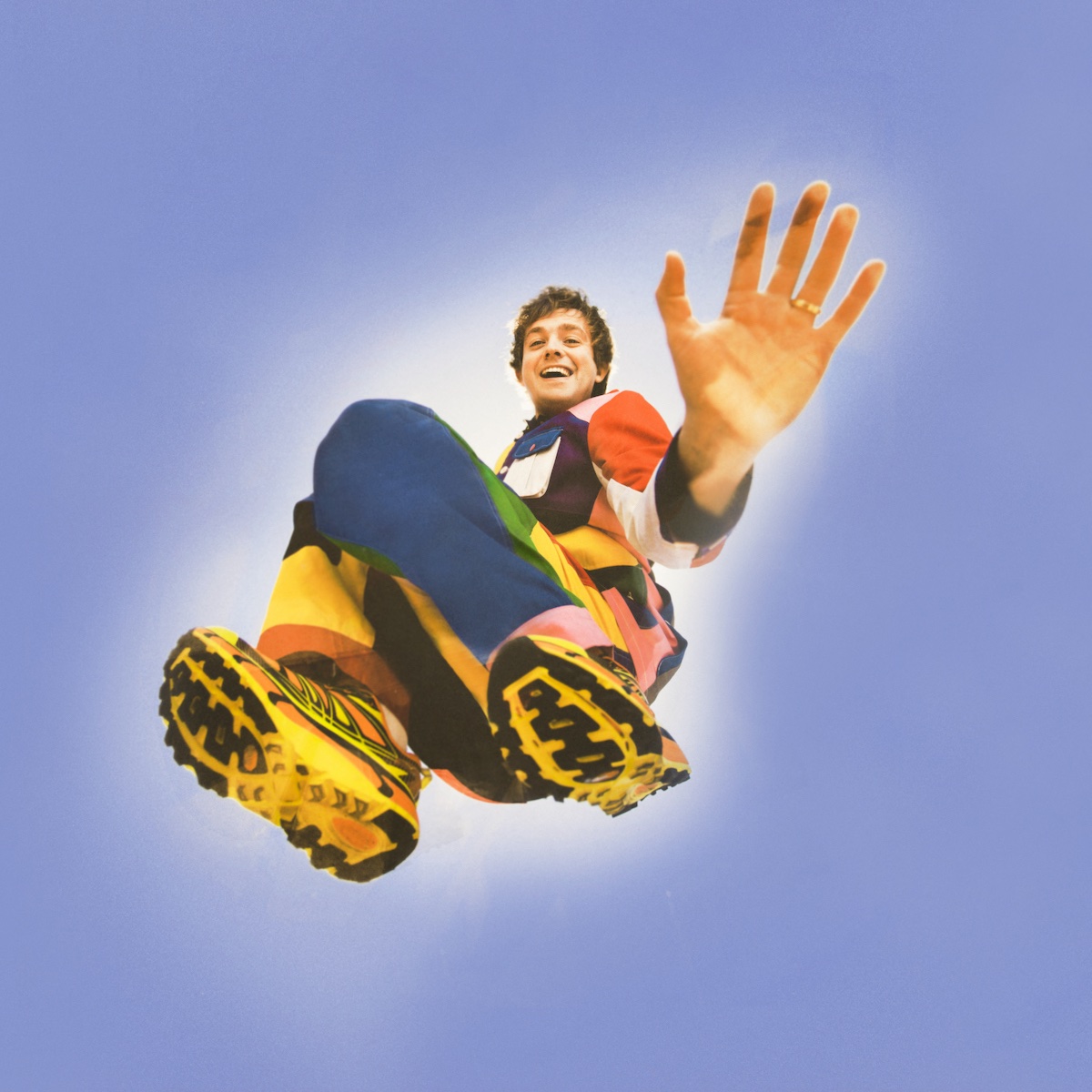
It’s like I’m telling the story of Dayglow rather than just myself.
So would you say that this album was born of the experience of having made other albums before, and becoming more seasoned?
Dayglow: I definitely think so. I’m 23, and I’m still learning a lot. But every album that I made, I’m still making it by myself. I’m learning each album and gaining access to more knowledge, gear, and just how to record and mix. And so with this album I feel really confident for the first time. I think this is my most artistic album. I wasn’t afraid to be artistic. Where on the first two albums I was a little too nervous and self aware to let myself be really artsy. On this album, I think I just went for it.
What made you pick “Deep End” and “Then It All Goes Away” to release as singles?
Dayglow: I don’t really know how to describe it other than that you just kind of know. You have to pick singles. I think the whole record is good, and I think there are definitely moments where, I know the type of people that’ll be like, ‘Oh, this will be my favorite song’, and obviously it surprises you all the time. So there could be something that takes off. I have no idea, or the singles might not be fan favorites, you know? But I think it tells the story of the record really well. It sets the scene for what it’ll be like.
Do you have any notable inspirations that really colored this album?
Dayglow: I went into this record with no rules. The only rule was that I wanted this to feel really high energy, like it was made to be listened to live. Because I really want to be a musician more than anything else. I don’t want to be a content creator. I don’t want to be like a Tik Tok person. I am thankful for all those platforms, but I hope people see that I’m a musician and a producer. Because it’s really hard to gain that respect and you make happy music. And so that’s my goal. So, with this record, that’s the only thing I want to do, is just make it sound really full. Hopefully impressive. I hoped people would be like, ‘He had a producer on this album,’ which has happened, which is kind of funny. They’re like, ‘Dayglow sold out! He’s working with producers now!’ when really I’ve just gotten better at what I do, which is a bit of fun encouragement. So I’m really into dance music, high energy stuff. I love Phoenix. I love LCD Soundsystem, which I haven’t really leaned into too much before. But with this record, I definitely did. That sense of exploring really simple chord progressions, and just making it feel like this fun, like organized chaos, which I kind of went with for this record.
They’re like, ‘Dayglow sold out! He’s working with producers now!’ when really I’ve just gotten better at what I do.
You mentioned that this is an album that’s made to be performed live. Is this a really monumental tour for you?
Dayglow: I’m in Nashville right now, because we’ve been doing rehearsals all week, and getting all the production all together. So we’ve been playing [the album] live for what the fall tour will look like, and it’s been really fun. I think people who come to the shows will have a fun time and will recognize that this is like a whole new thing. The tour is a long one. It’s the biggest tour I’ve done by length, and also by room size and everything. There’s just really good energy going into it. I’m so excited.
— —
:: visit dayglowband.com/tour for Dayglow tour info ::
:: stream/purchase People In Motion here ::
— — — —

Connect to Dayglow on
Facebook, Twitter, Instagram
Discover new music on Atwood Magazine
? © Dana Trippe
:: Stream Dayglow ::

